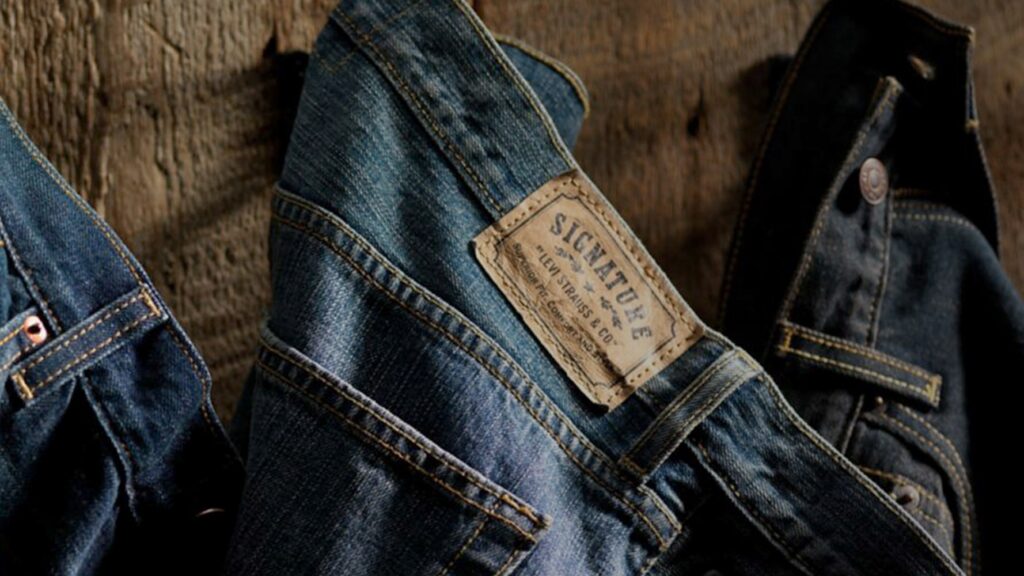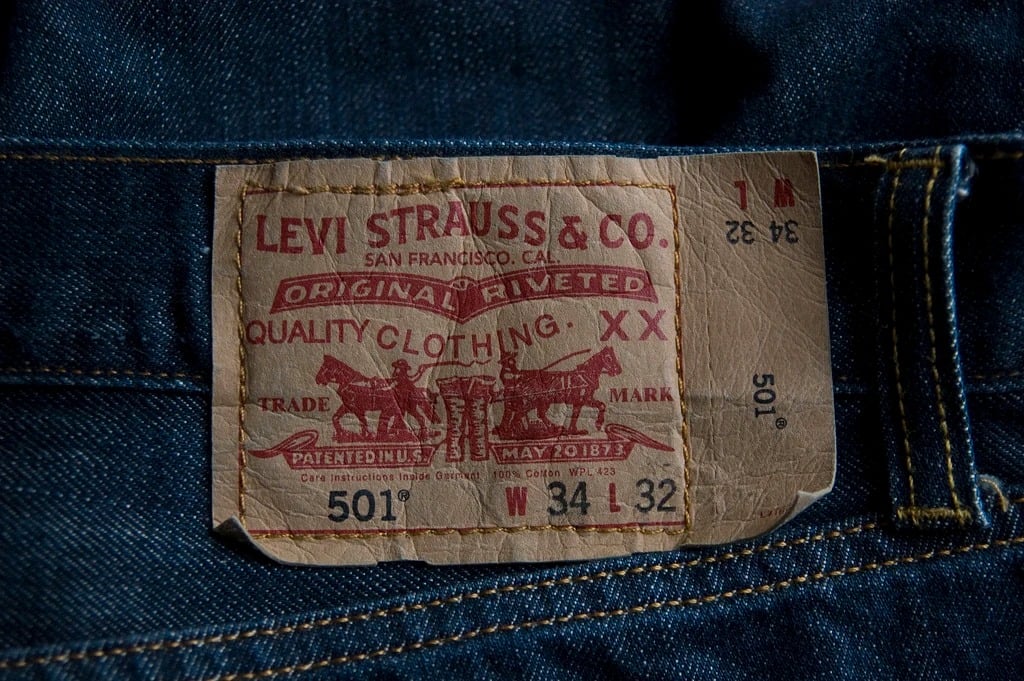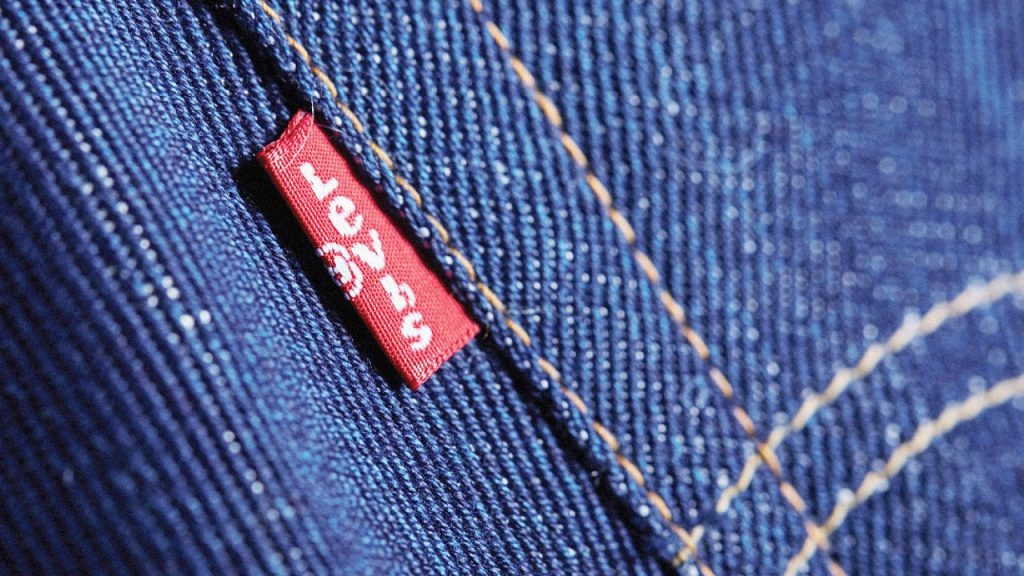Levi Strauss & Co. is a well-known American clothing company, primarily known for its denim jeans. The company was founded in 1853 by Levi Strauss, who immigrated to the United States from Germany. Initially, the company’s main product was denim jeans for miners during the California Gold Rush.
In 1873, Levi Strauss & Co. created the first pair of blue jeans with metal rivets, which is now known as the iconic “501” style. Over the years, the company has expanded its product line to include various styles and colors of jeans, as well as other clothing items such as jackets, shirts, and accessories.
Today, Levi Strauss & Co. is a global brand with operations in more than 100 countries. The company is known for its commitment to sustainability, innovation, and social responsibility, and has been recognized for its efforts in these areas.

Evolution of The Company
Levi Strauss & Co. has a long and storied history of evolution and growth. Here are some key milestones in the company’s development:
- 1853: Levi Strauss, a German immigrant, opens a wholesale dry goods business in San Francisco, California.
- 1873: Levi Strauss & Co. patents the process of using metal rivets to reinforce the seams of denim pants, creating the first pair of blue jeans. The style becomes known as the “501.”
- 1902: The company introduces its first line of overalls, which become popular among farmers and other workers.
- 1930s-1940s: Levi Strauss & Co. introduces new styles of jeans, including the “501Z” with a zipper fly, and the “506” with a slimmer fit.
- 1960s: Jeans become a symbol of youth rebellion and counterculture, and Levi Strauss & Co. gains popularity among young people.
- 1980s-1990s: The company expands globally, with operations in Europe, Asia, and Latin America. It also introduces new products, such as Dockers khaki pants and women’s wear.
- 2000s-present: Levi Strauss & Co. continues to innovate and expand, introducing new styles and technologies such as stretch denim and Water<Less finishing processes that conserve water. The company also increases its focus on sustainability and social responsibility, with initiatives such as the Levi Strauss Foundation and the Better Cotton Initiative.
Throughout its history, Levi Strauss & Co. has remained a leader in the denim and apparel industry, while also adapting to changing cultural and environmental trends.
Products and Services Offering
Levi Strauss & Co. primarily offers denim jeans and other clothing items. Here are some of the products and services the company offers:
- Jeans: Levi Strauss & Co. is best known for its denim jeans, which come in a variety of styles, fits, and washes. The company offers men’s, women’s, and children’s jeans, as well as plus-size and tall sizes.
- Clothing: In addition to jeans, Levi Strauss & Co. offers a range of clothing items, including jackets, shirts, sweaters, hoodies, and dresses. The company’s clothing is designed to be comfortable, durable, and stylish.
- Accessories: Levi Strauss & Co. also offers a range of accessories to complement its clothing, including belts, hats, socks, and bags.
- Customization: The company offers customization services, allowing customers to personalize their jeans with patches, embroidery, and other embellishments. Levi Strauss & Co. also offers a Tailor Shop service that provides alterations, repairs, and hemming.
- Sustainability: Levi Strauss & Co. is committed to sustainability and offers a range of products and services that reflect this commitment. For example, the company’s Water<Less finishing process uses less water to finish its jeans, while its WellThread line uses sustainable materials and manufacturing practices.
Overall, Levi Strauss & Co. offers a wide range of products and services that cater to a diverse customer base, while also reflecting the company’s commitment to sustainability and social responsibility.

Brand identity and marketing
Levi Strauss & Co. has a strong brand identity that has been built over the course of its long history. The company’s brand is associated with quality, durability, and authenticity, and has become an iconic symbol of American culture. Here are some key aspects of Levi Strauss & Co.’s brand identity and marketing:
- Logo and visual identity: The company’s logo, featuring the Levi’s name in bold red letters, is one of the most recognizable logos in the world. The logo has remained relatively consistent over the years, with minor tweaks to the design to keep it fresh and modern. The company’s visual identity is also characterized by the use of denim and earth tones, reflecting its roots in the American West.
- Advertising: Levi Strauss & Co. has a long history of innovative and memorable advertising campaigns. In the 1980s and 1990s, the company’s “501 Blues” campaign featured black-and-white images of celebrities such as Bruce Springsteen and Miles Davis wearing Levi’s jeans. More recently, the company’s “Live in Levi’s” campaign has focused on the idea of Levi’s as a lifestyle brand, with ads featuring everyday people living their lives in Levi’s jeans.
- Social media: Levi Strauss & Co. has a strong presence on social media, with millions of followers on platforms such as Instagram, Facebook, and Twitter. The company uses social media to showcase its products, connect with customers, and promote its sustainability and social responsibility initiatives. Levi’s also partners with social media influencers and celebrities to expand its reach and appeal to younger audiences.
- Collaborations: Levi Strauss & Co. has collaborated with a range of designers, artists, and musicians over the years to create limited-edition collections and special products. These collaborations have helped the company stay relevant and appeal to new audiences, while also reinforcing its reputation for authenticity and creativity.
Overall, Levi Strauss & Co.’s brand identity and marketing strategies are closely tied to its history, values, and iconic products. The company has successfully adapted to changing cultural trends and consumer preferences while staying true to its core identity as a maker of high-quality denim jeans.
Sustainability initiatives
Levi Strauss & Co. has been a leader in sustainability initiatives in the fashion industry. The company has taken a comprehensive approach to sustainability, focusing on reducing its environmental impact, promoting responsible sourcing, and supporting its workers and communities. Here are some key sustainability initiatives that Levi Strauss & Co. has implemented:
- Water<Less finishing process: Levi’s Water<Less finishing process reduces the amount of water used in the production of its jeans. The process can reduce water usage by up to 96% for certain styles, resulting in significant water savings across the company’s operations.
- Sustainable materials: The company is committed to using sustainable materials in its products. Levi’s WellThread line features jeans made from 100% cottonized hemp, which requires less water and fewer pesticides to grow than conventional cotton. The company also uses recycled materials in its products, such as recycled polyester made from plastic bottles.
- Carbon reduction: Levi’s has set ambitious targets to reduce its greenhouse gas emissions across its operations, including its factories, offices, and supply chain. The company is working to achieve net-zero emissions by 2025 and has committed to sourcing 100% renewable energy for its owned-and-operated facilities.
- Responsible sourcing: Levi’s is committed to responsible sourcing practices, including ethical treatment of workers and responsible management of natural resources. The company has implemented a supplier code of conduct and works closely with its suppliers to ensure compliance with labor and environmental standards.
- Social responsibility: In addition to its environmental sustainability initiatives, Levi’s is committed to social responsibility. The company supports programs that improve the lives of its workers and their communities, including education and job training programs, as well as disaster relief efforts.

Overall, Levi Strauss & Co. has been a leader in sustainability initiatives in the fashion industry. The company’s comprehensive approach to sustainability reflects its commitment to responsible business practices and its recognition of the need to address the urgent environmental and social challenges facing the world today.






